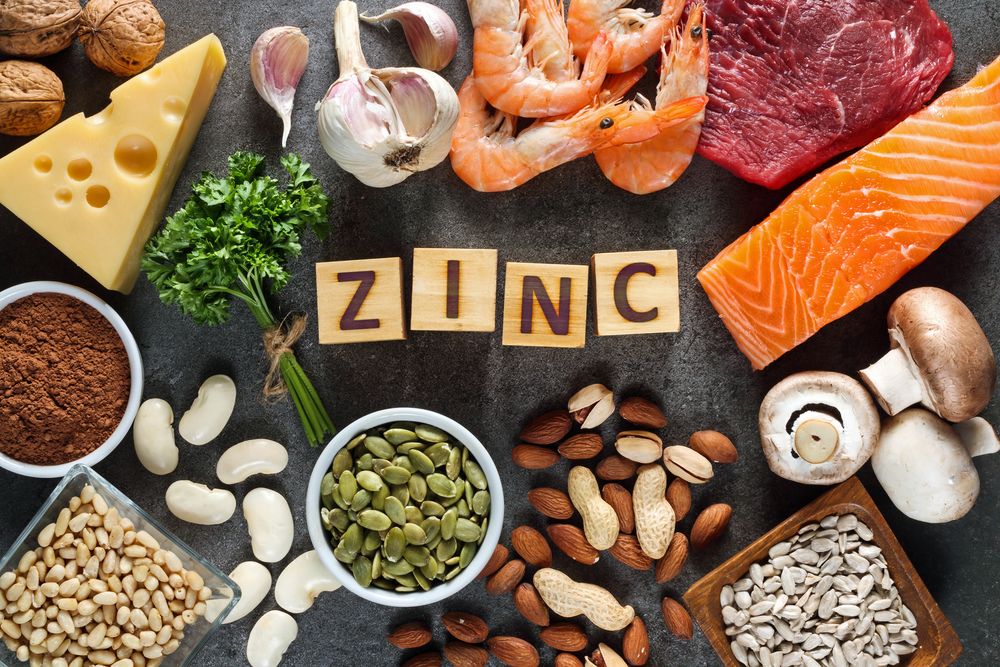Why is Zinc So Important for You?
Zinc is an essential trace mineral that plays a critical role in various physiological processes within the human body. It is necessary for the proper functioning of the immune system, wound healing, DNA synthesis, and growth and development. Zinc is also involved in the regulation of hormone levels and the metabolism of carbohydrates, fats, and proteins. This essay will discuss the importance of dietary zinc and its potential health benefits.
Sources of Zinc:
Zinc is found in a wide variety of foods, including meat, seafood, beans, nuts, whole grains, and dairy products. Oysters are the richest source of zinc, with six medium-sized oysters providing about 32 milligrams of zinc. Red meat, poultry, and seafood are also good sources of zinc. Vegetarians can obtain zinc from legumes, nuts, seeds, and whole grains. The recommended dietary allowance (RDA) for zinc varies based on age, gender, and other factors.
Health Benefits of Zinc:
1) Immune System Function:
Zinc plays a vital role in the proper functioning of the immune system. It is necessary for the development and activation of immune cells such as T-cells and natural killer cells. Zinc also helps to regulate the production of cytokines, which are involved in the inflammatory response. Zinc deficiency can impair immune function and increase the risk of infections.
2) Wound Healing:
Zinc is important for the growth and repair of tissues in the body. It is involved in the synthesis of collagen, which is necessary for wound healing. Zinc also helps to promote the growth of new blood vessels, which can facilitate the healing process.
3) Healthy Skin:
Zinc is important for maintaining healthy skin. It is involved in the production of sebum, which is the natural oil that lubricates the skin. Zinc also has anti-inflammatory properties, which can help to reduce acne and other skin conditions.
4) Brain Function:
Zinc is important for proper brain function. It is involved in the regulation of neurotransmitters, which are chemicals that transmit signals in the brain. Zinc also plays a role in the development and maintenance of brain cells. Zinc deficiency has been linked to cognitive impairments and mood disorders.
Zinc has also been associated with other potential health benefits, such as:
- Reduced risk of age-related macular degeneration
- Improved heart health
- Improved fertility in men
- Reduced symptoms of the common cold
- Reduced inflammation
Zinc Deficiency:
Zinc deficiency is relatively common, particularly in developing countries. It can also occur in individuals with certain medical conditions, such as Crohn’s disease or celiac disease, that impair nutrient absorption. Zinc deficiency can result in a range of symptoms, including:
- Weak immune system
- Delayed wound healing
- Skin conditions such as acne and eczema
- Hair loss
- Digestive issues
- Cognitive impairments
Dietary Zinc:
It is important to obtain zinc from the diet as the body cannot produce zinc on its own. A varied diet that includes zinc-rich foods can provide the recommended daily allowance of zinc. However, certain populations may be at risk of zinc deficiency and may require supplements. Zinc supplements are available in various forms, including tablets, capsules, and lozenges.
Conclusion:
In conclusion, dietary zinc is essential for various physiological processes within the human body. It plays a critical role in the proper functioning of the immune system, wound healing, brain function, and healthy skin. Zinc is found in a wide variety of foods, and a varied diet can provide the recommended daily allowance of zinc. However, certain populations may be at risk of zinc deficiency and may require supplements. It is important to consult with a healthcare professional before taking any supplements.


